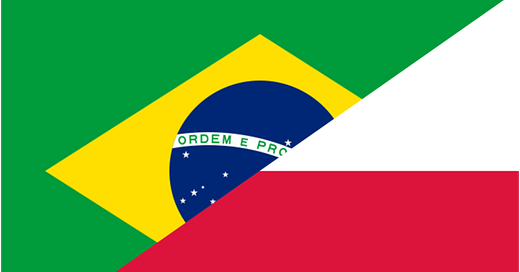In Brazil, “it’s fucking over!” In Poland, it’s only just beginning.
As COP27 begins, a look at two big emitters.
Greetings from sunny Astoria, Queens, where my boyhood best friend Matt Grasso tried his first vodka-roni pie at the real Bellucci’s pizza last night. He was impressed.
The United Nations’ annual climate summit began yesterday in Egypt, so I’m writing to share with you two stories that can help frame the latest negotiations over how to decarbonize the gl…
Keep reading with a 7-day free trial
Subscribe to FIELD NOTES from Alexander C. Kaufman to keep reading this post and get 7 days of free access to the full post archives.



